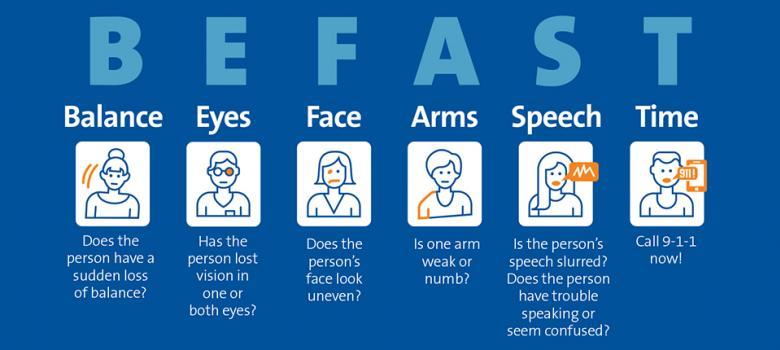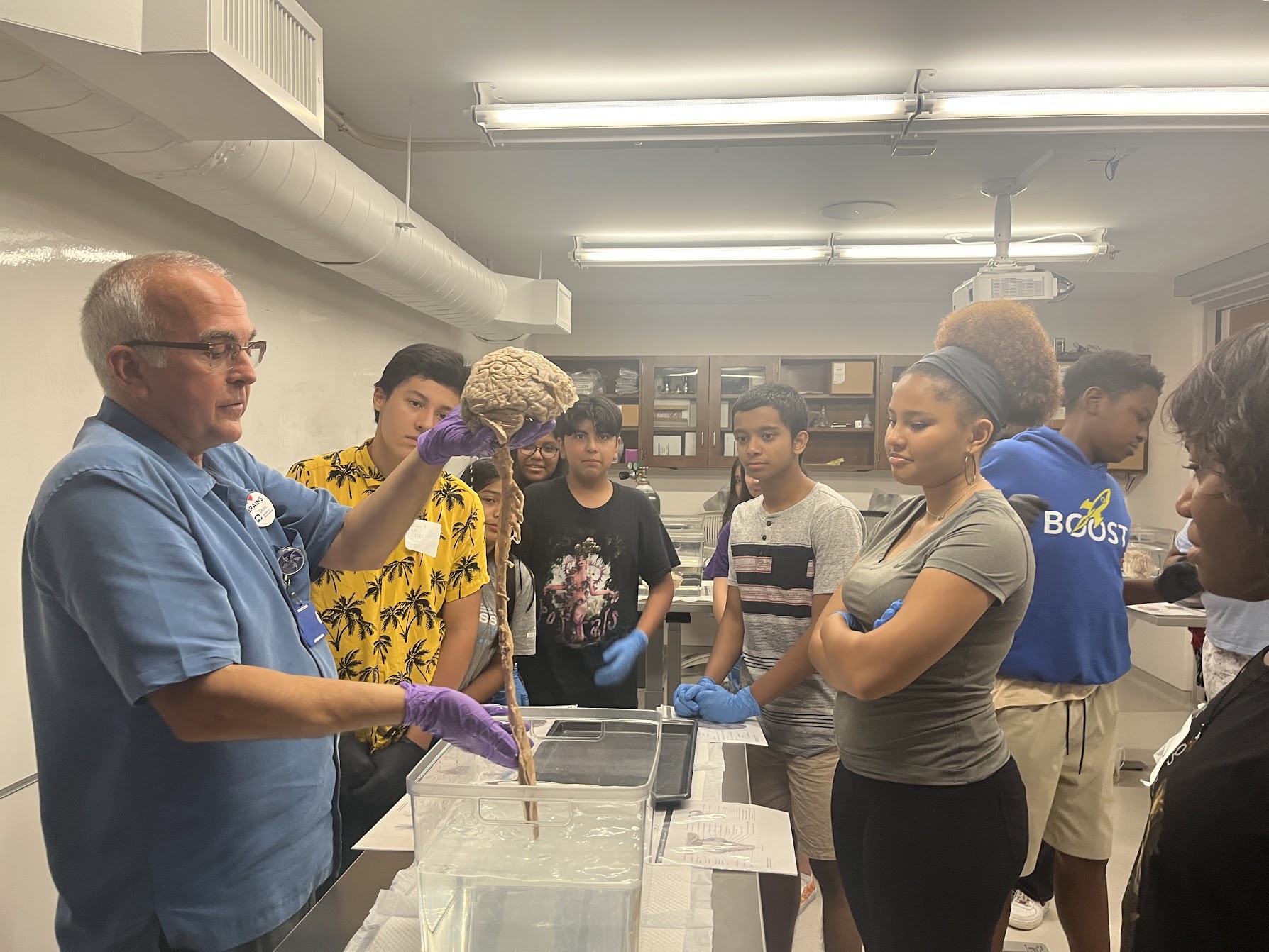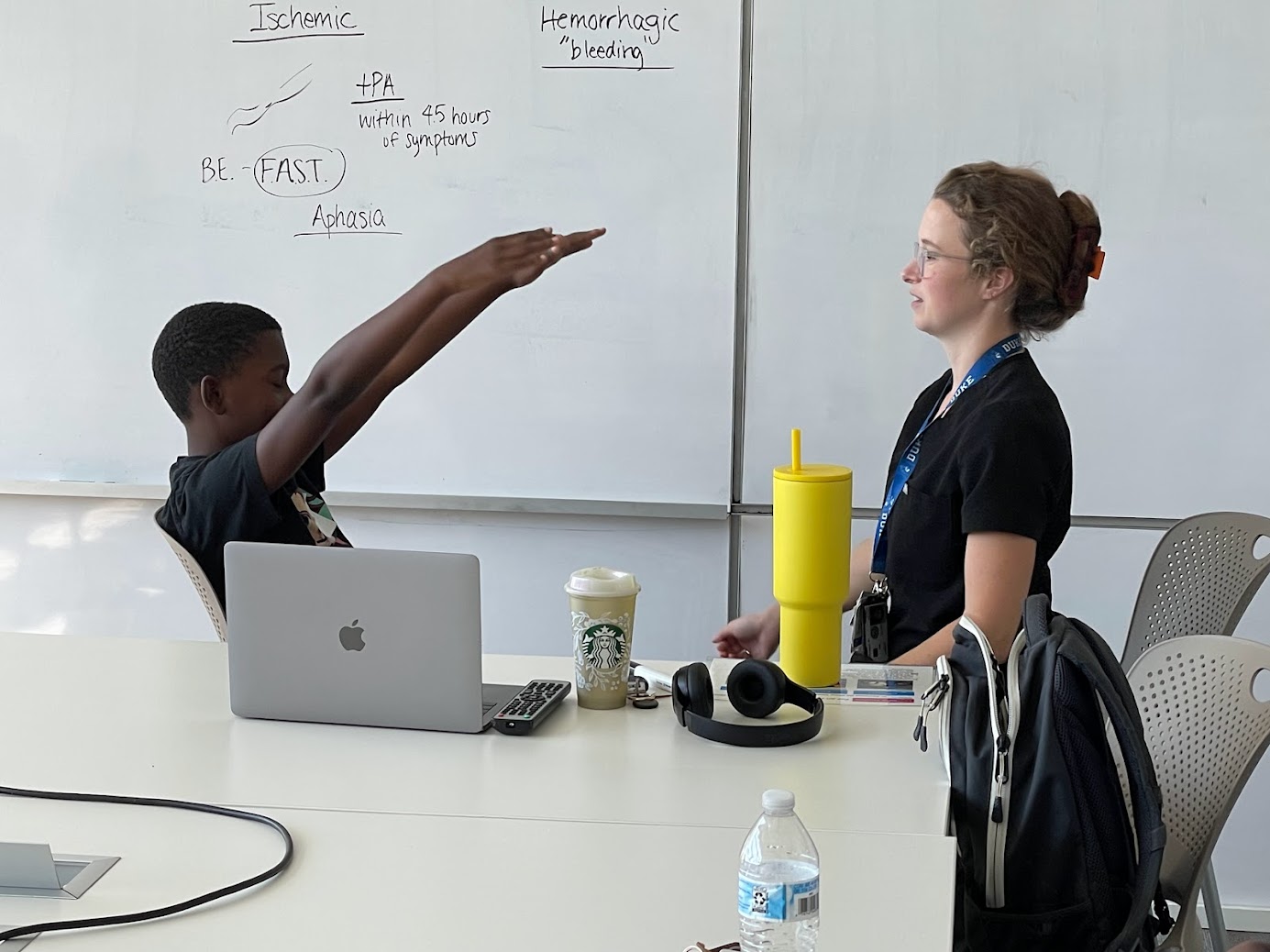
Middle School Students BOOST Their Interest in Neurology
August 28, 2023 | By William Alexander
Originally published by the Department of Neurology
Local middle school students visited Duke this August to touch human brains, learn about the U.S. health system, and watch research being conducted in real time, thanks to the BOOST (Building Opportunities and Overtures in Science and Technology) program and the Duke Neurology Department.
The Duke BOOST program excites Durham public school students from underrepresented and underserved communities about science and inspires them to pursue careers in medicine and related fields. During their most recent summer session, BOOST students in the 6th and 8th grade visited the Duke Neurology Department, Duke Cancer Institute, Duke Eye Center, and other locations.
Associate Professor of Neurology Leonard White, PhD, has been introducing BOOST students to the wonders of neuroscience and the human brain for the past decade. During his most recent interactive session, White reviewed the anatomy and function of the brain, as well as the development of Alzheimer’s disease and other conditions. Students also had the opportunity to touch the brains and hold them in their hands.
“I love the expressions when students encounter human brains for the first time,” White said.

In addition to White’s neuroanatomy lesson, a separate group of 6th grade BOOST students had a whirlwind tour covering all major areas of neurology. Residents Megumi Seguta, MD, and Annie Cavalier, MD, discussed what strokes were, shared the “BE FAST” (Balance, Eyes, Face drooping, Arm weakness, Speech difficulty, and Time to call 911) mnemonic to help students recognize and respond to a stroke, and performed a mock stroke code on a student volunteer.

Sugita said she enjoyed the enthusiasm of the students as well as the chance to share her passion for her work. “I think neurology is the coolest field of medicine and hope the students learned something or sparked their interest,” she said. “ It was also refreshing to talk to young students and interact with people outside of the hospital. They couldn't believe that we carry around pagers that you can’t use to send text messages or receive phone calls.”

Neurologist Burton Scott, MD, PhD, and Physician Assistant Ashley Lengel, PA-C, shared their experiences treating people with multiple sclerosis, Parkinson’s disease, and other conditions as well as their complementary roles in providing patient care.
In their third morning session, BOOST students visited the Bryan Research Building, where Assistant Professor Carlene Moore, PhD, and Lab Analyst Dellila Hodgson, MS, reviewed how translational neuroscience research is helping us better understand, treat, and prevent conditions like migraines and Alzheimer’s disease.
This visit culminated with a tour of Moore’s lab, where students were able to see in-progress research examining how mice responded to various treatments and stimuli.
“Some of the students came in looking bored and telling us that they didn't have any favorite subjects, but by the end they were all asking questions and smiling from ear to ear,” Hodgson said. “I can’t wait to work with BOOST again.”
Since its foundation in 2005 by Brenda Armstrong, MD, BOOST has helped more than 1,000 Durham students build connections with science and medicine. BOOST recently expanded its offerings to include BOOST Beyond, a student-driven mentorship program designed to help students plan and accomplish their post-high school goals. Read more about BOOST here.